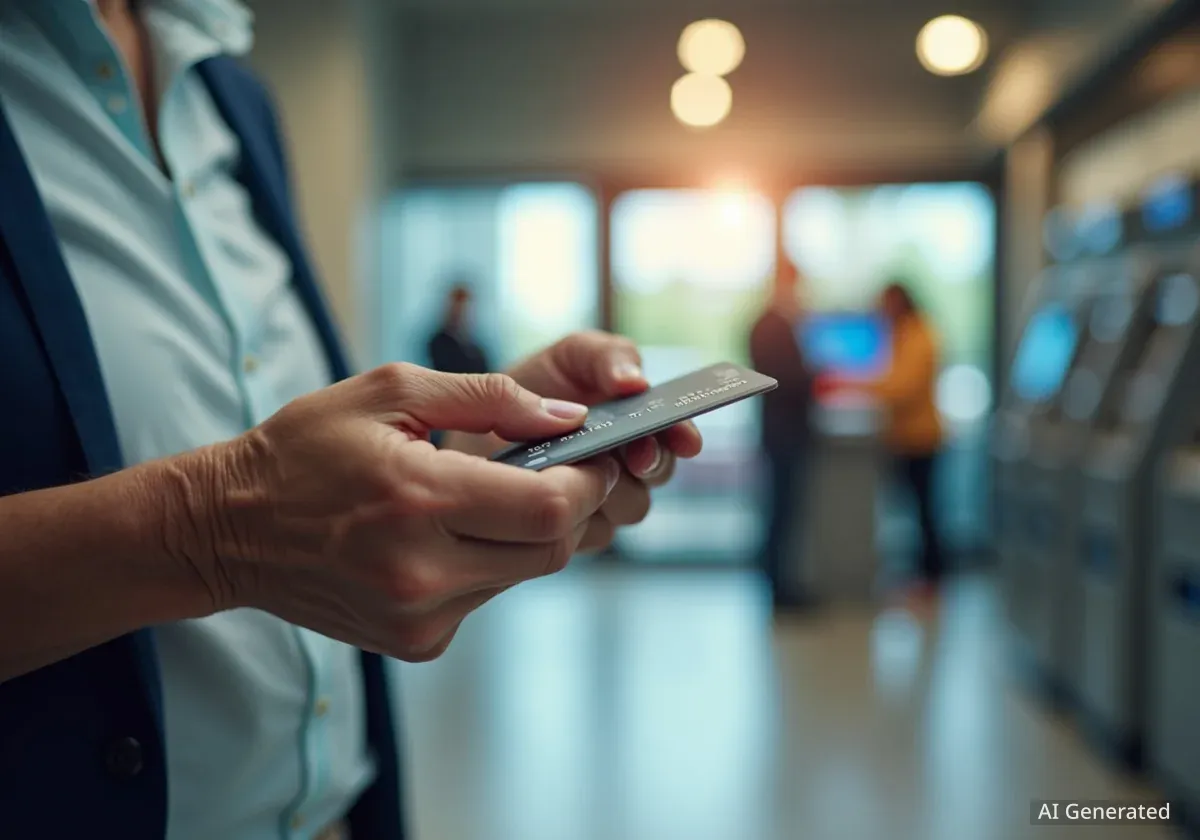The U.S. Treasury Department is set to phase out paper checks for most federal payments, including Social Security and tax refunds, by September 30. This move, part of a broader government modernization plan, will transition millions of recipients to electronic payment methods.
While officials cite increased security and cost savings as primary drivers for the change, advocates for seniors and low-income individuals express concern that the transition may be too rapid for the most vulnerable populations to adapt.
Key Takeaways
- Deadline Set: The U.S. Treasury will stop issuing most paper checks for federal benefits after September 30.
- Affected Payments: The change applies to Social Security, tax refunds, and other federal programs.
- Impacted Group: Over 5 million people, primarily seniors, individuals with disabilities, and those without bank accounts, will be affected.
- Official Rationale: The government aims to reduce costs, improve efficiency, and combat rising check fraud.
- Advocate Concerns: Experts worry that vulnerable recipients may not be aware of the change or may struggle to access alternative payment options.
The Shift to Digital Payments Explained
The decision to eliminate paper checks is a significant step in a long-standing, bipartisan effort to modernize federal payment systems. According to the Treasury Department, the executive order is designed to make government services more efficient and secure for millions of Americans.
The deadline of September 30 marks the final phase of a transition that has been developing for years. Officials state that electronic payments are processed more quickly and are significantly less prone to fraud and theft compared to physical checks.
By the Numbers
The White House reported that banks issued 680,000 reports of check fraud in 2022, nearly double the number from 2021. This sharp increase has added urgency to the government's push for more secure payment methods.
Cost and Security Drive the Change
A major factor behind this initiative is financial efficiency. The government estimates that an electronic transaction costs less than 15 cents to process, whereas issuing and mailing a paper check costs approximately 50 cents. This difference is expected to save millions of dollars annually.
Security is another critical concern. Treasury officials have noted that paper checks are far more likely to be reported lost, stolen, or altered. They are also more frequently returned as undeliverable, causing delays and complications for recipients who depend on these funds.
Impact on Vulnerable Populations
While the vast majority of federal beneficiaries already receive payments electronically, more than five million people still rely on paper checks. This group is largely composed of individuals who may face significant hurdles in adapting to a digital-only system.
Jennifer Tescher, founder of the nonprofit Financial Health Network, told The Washington Post that these are "populations that may be more challenged by having to change the way they receive their federal benefits."
The primary groups affected include:
- Seniors: Many older adults are less familiar with digital banking and may not have easy access to the internet.
- People with Disabilities: Physical or cognitive impairments can make managing electronic accounts or debit cards difficult.
- The Unbanked: Individuals without traditional bank accounts will need to sign up for an alternative.
- Immigrant Communities: Language barriers and lack of familiarity with the U.S. banking system can pose challenges.
A Long-Term Trend
The effort to phase out paper checks is not new. Congress passed legislation in the 1990s to encourage electronic payments for many federal benefits. This has been largely successful, with fewer than 1% of recipients from the Social Security Administration and the Department of Defense still receiving paper checks. This final push targets the remaining recipients.
Government Outreach and Payment Alternatives
To manage the transition, the Treasury Department began a communication campaign in July. This includes mailing informational packets to affected beneficiaries, sending mass emails, posting on social media, and updating scripts for call center representatives.
For those without a bank account, the primary alternative is the Direct Express Card. This is a prepaid debit card that the government can load funds onto directly. It functions like a standard debit card for purchases and ATM withdrawals.
Concerns Over Implementation
Despite these efforts, some experts believe the outreach may not be sufficient. Kathleen Romig, a former Social Security Administration official now with the Center on Budget and Policy Priorities, raised concerns about the accessibility of the new systems.
"Some people are just not going to be able to manage the steps," Romig stated, noting that she tried calling the signup number for the Direct Express Card in late August but "couldn’t get through to a person."
Advocates also point to potential confusion surrounding government-issued debit cards. During the pandemic, millions of stimulus payments were sent on debit cards in plain, unmarked envelopes, which many people mistook for junk mail and discarded.
Exemptions and Agency Responses
The administration has acknowledged that a complete transition may not be possible for everyone. Waivers will be available for certain individuals, though officials have stated they will be granted in "rare circumstances."
Reasons for an exemption may include:
- Living in a remote location without access to financial institutions.
- Possessing a mental impairment that prevents managing an electronic account.
- Being 90 years of age or older, which allows for an automatic exemption upon request.
The Social Security Administration has committed to supporting beneficiaries through this change. A spokesperson confirmed the agency is "proactively" contacting recipients to inform them of the new requirements.
"Where a beneficiary has no other means to receive payment, we will continue to issue paper checks," the SSA spokesperson told The Washington Post. Similarly, the Defense Finance and Accounting Service has stated it will keep issuing paper checks "when necessary" and will increase its communication with payees.
As the September 30 deadline approaches, the focus remains on ensuring that the five million affected Americans can successfully navigate the transition without disruption to the essential benefits they rely on.





